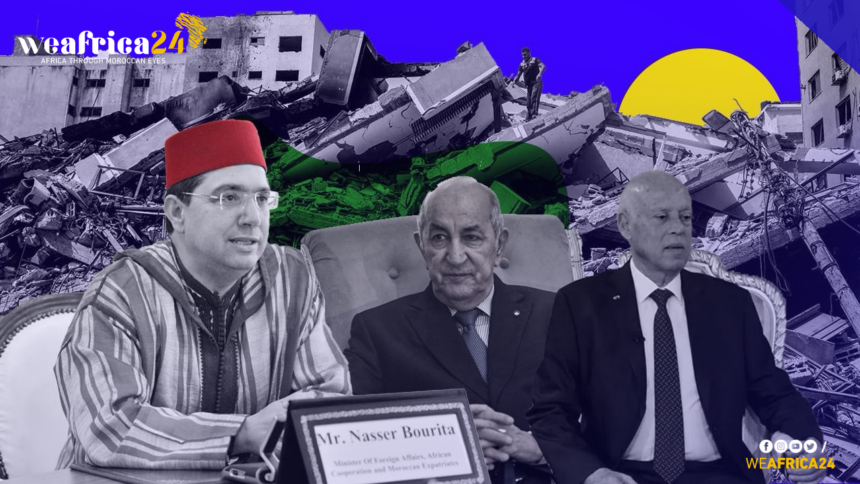In an official statement from the Kingdom of Morocco, strong condemnation was voiced against military actions targeting civilians in the wake of the Israel-Hamas conflict. The statement emphasized the urgent need for an immediate cessation of violence, seeking a delicate balance between honoring the Abraham Accords, upholding relations and agreements with Israel, and steadfastly advocating for the Palestinian cause. Furthermore, the statement called for international engagement to work towards a two-state solution.
While delivering this message from Rabat, Moroccan authorities refrained from direct references to specific parties but expressed profound concern about the deteriorating situation and the outbreak of military operations in the Gaza Strip. They strongly denounced attacks on civilians wherever they occurred, urging a swift return to calm.
Morocco also underlined the perils of a political blockade on regional peace and the potential escalation of tensions. The nation reiterated its commitment to dialogue and the two-state principle as the sole path toward resolving the Palestinian issue. As the current chair of the Council of the League of Arab States, Morocco played an active role by convening foreign ministers in Cairo to assess the situation.
In a show of public sentiment, activists gathered before the Moroccan parliament in Rabat with Palestinian flags, expressing their disapproval of normalization of relations with Israel. Various left-wing Islamist and Moroccan political parties expressed support for Palestinian factions. The Progress and Social Party asserted that Palestinian resistance represented a legitimate defense of Palestinian rights.
Ibrahim’s agreements
Notably, Morocco stands as one of the Arab and Maghreb countries that engaged in the Abraham Agreements, establishing diplomatic relations with Israel. The rapprochement between Tel Aviv and Rabat has grown evident since the signing of these agreements over two years ago, with the United States as a driving force. Moreover, Morocco and Israel have deepened military ties, marking an unprecedented partnership between Israel and a Maghreb Arab state.
In July, Israel acknowledged Morocco’s full sovereignty over its southern provinces, paving the way for a consulate in the city of Dakhlh, situated in the former Spanish colony.
David Govrin, the head of the Israeli Liaison Office in Rabat, demanded a clear condemnation from the international community in response to what he described as the recent terrorist attack against Israeli citizens, and unwavering support for Israel’s right to self-defense.
In addition to Morocco, other Arab countries like the United Arab Emirates and Jordan also maintain a position that seeks to balance between the conflicting parties, emphasizing the importance of de-escalation and dialogue.
Algeria and Tunisia’s reaction
Turning to neighboring countries, Algeria expressed deep concern about what it termed a “barbaric Zionist aggression” against the Gaza Strip. Algiers called upon the international community to intervene promptly to protect the Palestinian people from brutality and crime.
Algeria firmly believes that the Zionist colonial occupation remains the core issue in the Arab-Israeli conflict, advocating for the establishment of an independent Palestinian state based on the 1967 borders, with East Jerusalem as its capital.
Tunisian President Qais Said asserted Tunisia’s duty to stand with the Palestinian people. He urged the international community to fulfill its historic responsibility in ending the occupation of Palestine and preventing further violations of Palestinian rights by Zionist occupation forces. President Said also raised concerns about media terminology, insisting that “Gaza Strip” should always be associated with “Palestine” to maintain the name’s significance in Arab thought.







